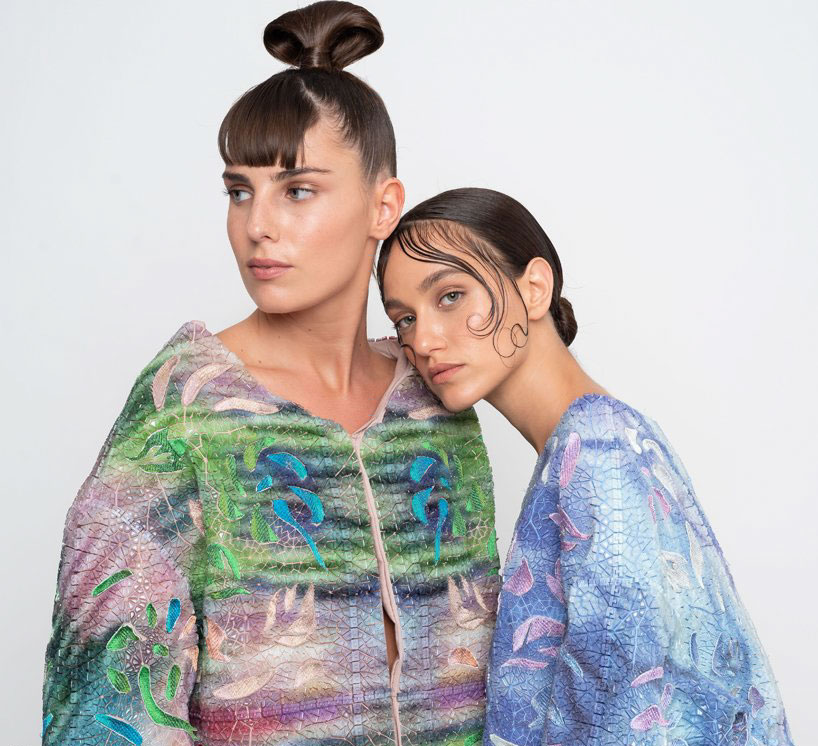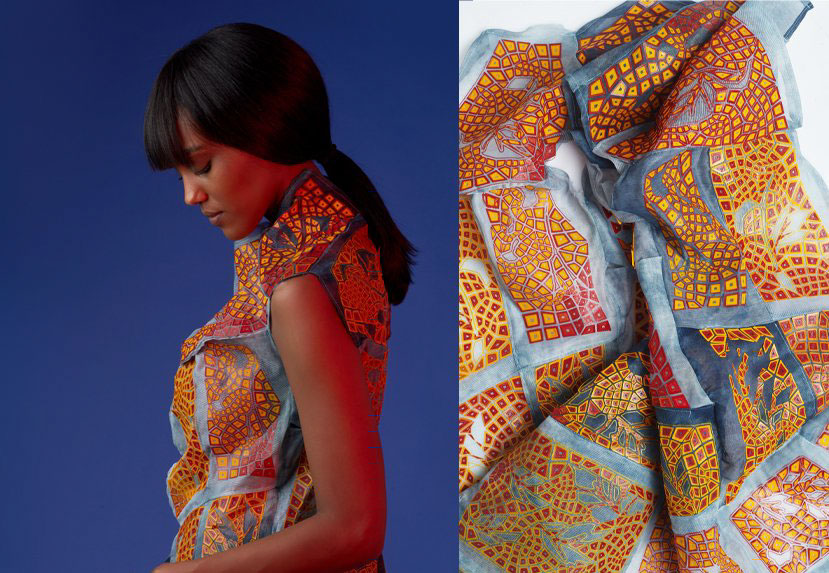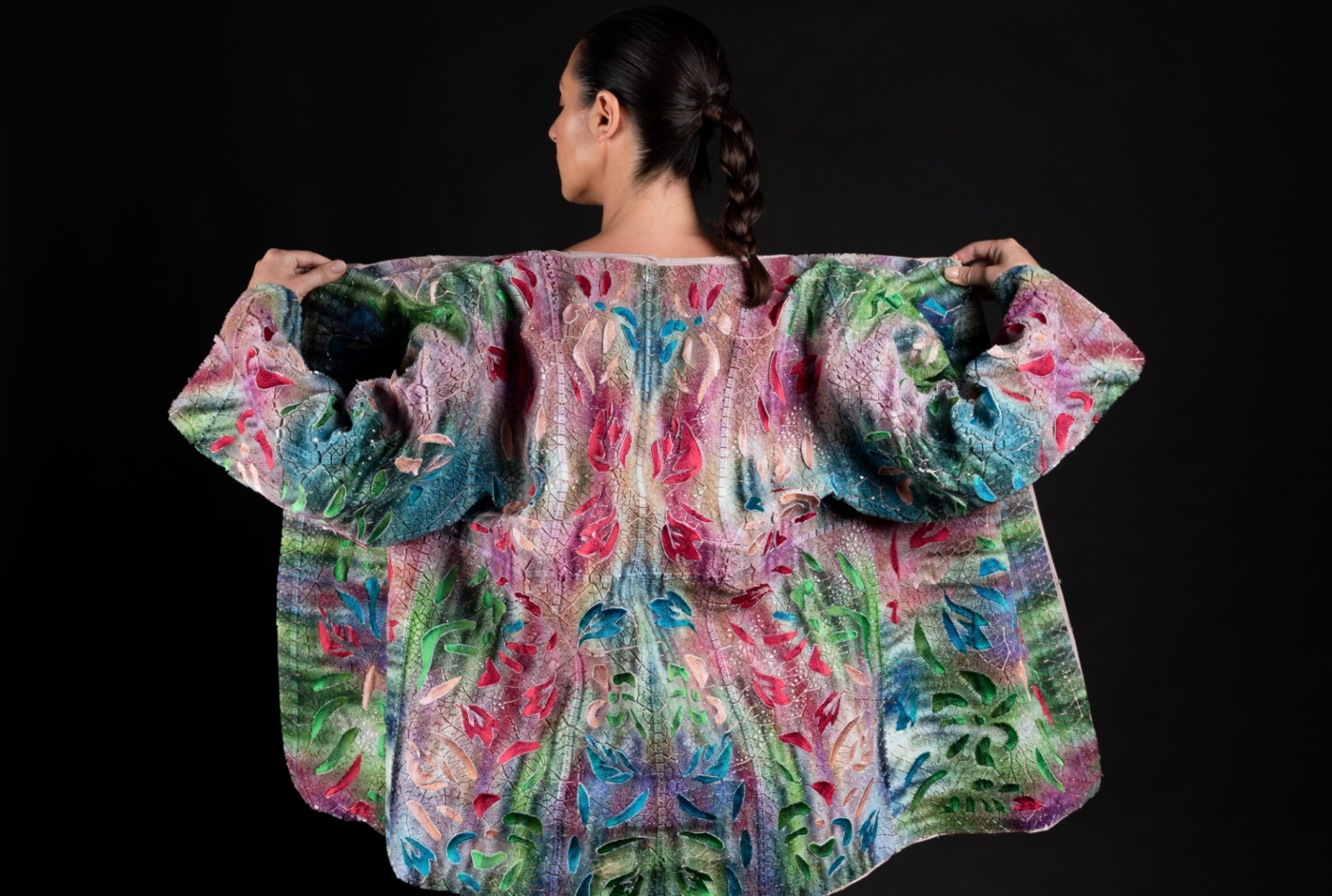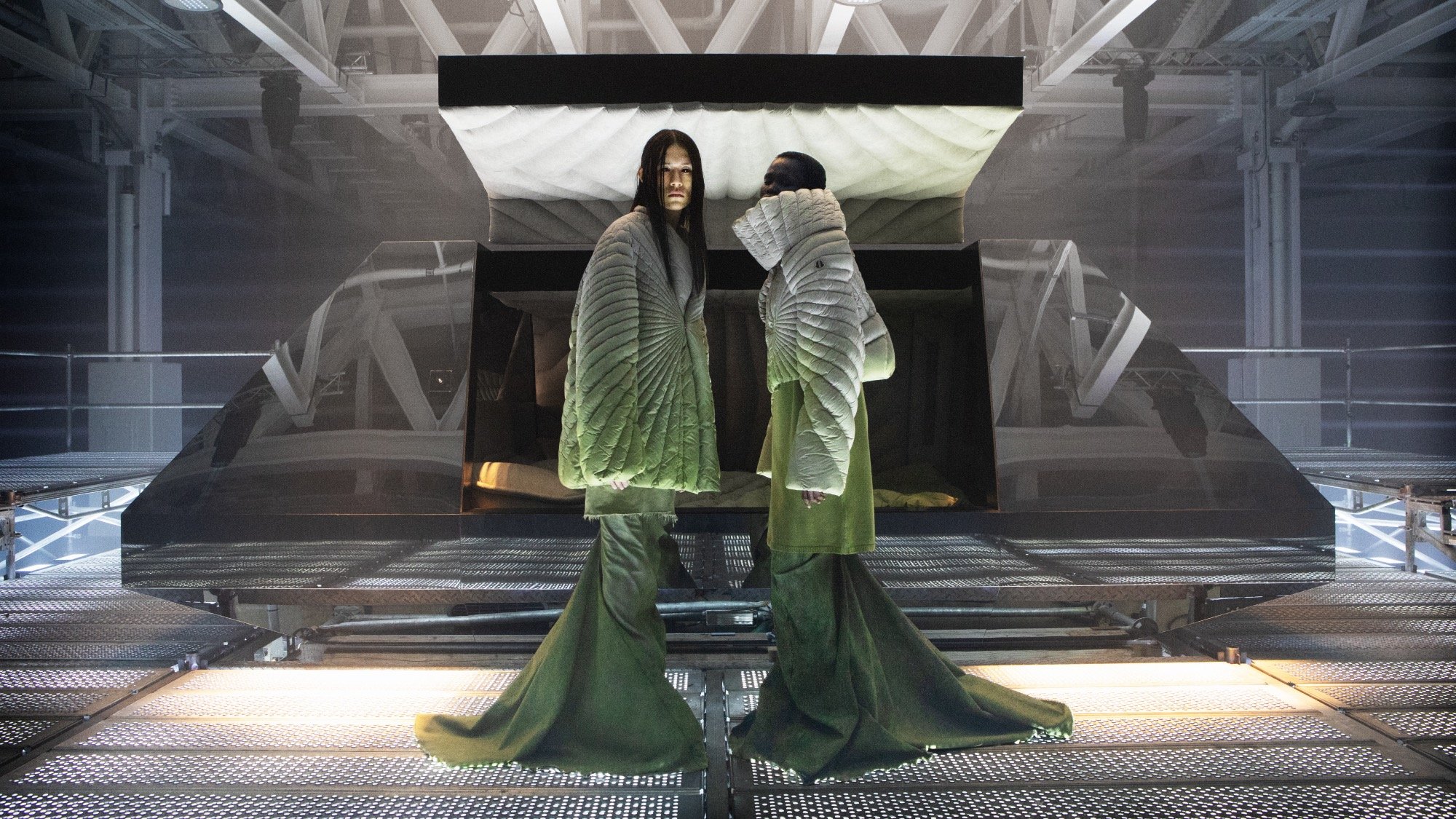Ganit Goldstein has launched a virtual reality fashion exhibition titled “WeAreAble.” The fashion designer’s interest lies in the intersection between craft and technology predominantly working to incorporate 3D printing and scanning into 3D textiles. For the exhibition, she created garments and shoes that result in mesmerizing tailored looks which fit perfectly to the wearer’s form.
The printed garments are based on measurements from a 360-degree body scanner, offering a personalized garment production that opposes mass production of ‘fast’ fashion’ technology. The collection lies on the crossroad of traditional Japanese techniques and ikat weaving and innovative 3D printing, challenging the current fashion industry production methods by using multi-material polyjet technology to develop new 3D printed textiles combined with multi-color embroidery.

Being the first designer to incorporate such technology into fashion, Goldstein collaborated with Stratasys 3D multicolor printing and other tech partners such as Haratech for 3D body scanning, in order to deliver the collection. Some of her designs also feature the ‘veroclear’ transparent material, which generates a crystal-like look.
As the ongoing COVID-19 pandemic troubled her plans to launch the collection at Berlin’s annual “Wear It Summit” exhibition, Goldstein developed an entire 360° exhibition space with the help of her brother, Yoav Goldstein, a senior computer vision and game developer at Intel corporation. The virtual reality technology they worked on for the past months creates a realistic 360 exhibition to display the collection.

“I was inspired to create the collections using these cutting-edge techniques after seeing the devastating impact fast fashion has on the environment” the Israeli designer explains. “Making one quality, a classic piece which fits the individual perfectly means a more sustainable approach to fashion – I hope that given the technologies we now have available to us, designers will work towards creating fewer, bespoke pieces and we can enjoy fashion without impacting the planet.” Goldstein pins her hopes on the project which offers an eco-friendly solution to attract customers who look to move away from the fast fashion industry.
Check out the videos detailing the process behind the production below and visit Ganit Goldstein’s website to see the virtual exhibition.




